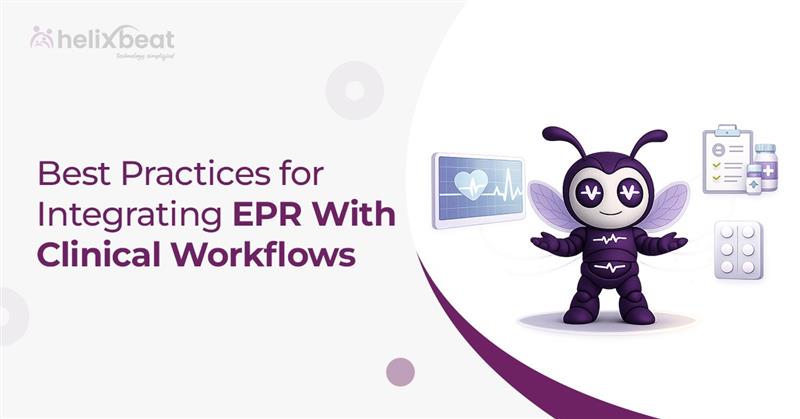Businesses today are facing an important turning point. Digital transformation is no longer just a trend—it’s becoming crucial for companies that want to stay relevant and competitive. However, despite the growing adoption of new technologies, many organizations find it difficult to keep pace with the changes. Technology transformation services aim to help companies overcome these challenges, but many still struggle with outdated systems, resistance to change, and a lack of skilled talent.
Studies show that these barriers can slow down progress, making it harder for businesses to modernize and adapt. As companies continue to evolve, the pressure to be more agile and efficient grows. As Hans Vestberg, CEO of Ericsson, put it, “The pace of change will never be as slow again as it is today.” This highlights the importance of acting now rather than waiting for the perfect moment.
Embracing IT modernization, technology adoption, and enterprise transformation isn’t just an option anymore—it’s necessary for long-term success. In this blog, we’ll explore how technology transformation services can help businesses break free from their legacy systems and unlock new opportunities for growth.

Table of Contents
Why Legacy Systems Are Holding Businesses Back
Many companies still rely on decades-old digital legacy systems that once powered their growth but now act as barriers to innovation. These systems are often rigid, expensive to maintain, and incompatible with today’s cloud-native, mobile-first environments.
Challenges with digital legacy systems include:
- Limited scalability and integration capabilities
- Poor user experience
- Security vulnerabilities
- High operational costs
- Inability to support real-time analytics or automation
Businesses that cling to these outdated technologies delay technology adoption and hinder their ability to respond to changing market demands.
The Role of Technology Transformation Services
Technology transformation services encompass a broad suite of solutions designed to modernize IT infrastructure, applications, and business processes. From migrating monolithic applications to the cloud to deploying AI-driven automation, these services align legacy systems with modern digital strategies.
Key offerings include:
- Legacy system modernization
- Cloud migration and platform reengineering
- Enterprise architecture redesign
- Cybersecurity and compliance upgrades
- AI and analytics enablement
By implementing these services, organizations move away from stagnant infrastructures and shift toward dynamic, scalable ecosystems that foster growth.
How Technology Transformation Services Enable Enterprise Transformation
The essence of enterprise transformation lies in reinventing how a business operates, competes, and delivers value. This reinvention is impossible without a strong technological backbone.
Here’s how technology transformation services fuel enterprise transformation:
1. Enabling Business Agility
Today’s market demands rapid response. Technology transformation services help businesses pivot faster by streamlining operations and removing bottlenecks caused by digital legacy systems.
2. Accelerating Time to Market
Modern platforms, APIs, and microservices enable quicker development and deployment cycles. This significantly boosts speed-to-market for new products and services.
3. Enhancing Customer Experience
Legacy systems lack the responsiveness and personalisation that customers now expect. With IT modernization, businesses can integrate CRM, AI, and omnichannel communication to deliver richer, data-driven experiences.
4. Driving Cost Efficiency
Modern technologies eliminate inefficiencies and reduce maintenance costs associated with aging infrastructure. Technology transformation services optimize resources, enabling better ROI.
5. Supporting Scalable Growth
As companies expand, they need platforms that scale. Legacy systems can’t keep up, but a well-architected digital infrastructure ensures seamless scaling.
IT Modernization: A Cornerstone of Digital Reinvention
IT modernization is the foundation upon which all digital progress rests. It involves updating infrastructure, applications, and workflows to meet current and future needs.
Core Components of IT Modernization:
- Cloud-first strategies to improve flexibility and resilience
- Automation and DevOps to enhance productivity and reduce errors
- Data modernization to support real-time insights and decision-making
- Cybersecurity enhancements to protect against evolving threats
Modernizing IT is not just about technology; it’s about creating a culture that welcomes technology adoption and continuous innovation.
Technology transformation services play a pivotal role in crafting this culture by aligning technical upgrades with business outcomes.
Breaking Free from Digital Legacy Systems
Letting go of digital legacy systems can be daunting. But with a structured approach led by experts in technology transformation services, organizations can navigate this change effectively.
Step-by-step Legacy Modernization Approach:
- Assessment: Understand the current state of systems, processes, and infrastructure.
- Strategic Planning: Define goals, metrics, and timelines aligned with business objectives.
- Prioritization: Identify high-impact systems that need urgent attention.
- Migration & Integration: Use phased transitions to move to modern platforms with minimal disruption.
- Testing & Optimization: Monitor performance and optimize systems for long-term scalability.
- Training & Adoption: Ensure teams are equipped to work with new technologies.
This structured roadmap minimizes risk and accelerates the value delivery of enterprise transformation efforts.
The Benefits of Digital Transformation
1. Increased Productivity and Reduced Labor Costs
Technology, when properly implemented, can streamline processes, reduce manual labor, and automate repetitive tasks. For enterprises, the costs associated with employee training, managing digital resources, and keeping up with ever-evolving tech can quickly become overwhelming. Digital transformation helps cut these costs while boosting productivity. For example, through automation, routine administrative tasks can be handled more efficiently, freeing up employees to focus on higher-value work.
2. Enhanced Customer Experience
In an age where customers demand seamless and personalized experiences, digital transformation offers businesses the tools to meet these expectations. By leveraging technologies such as artificial intelligence, cloud computing, and automation, businesses can enhance customer service, create more personalized interactions, and offer omnichannel experiences. As a result, companies can build stronger customer loyalty and increase retention rates.
3. Driving Innovation
Digital transformation is a key driver of innovation. By adopting new technologies, businesses can streamline their operations and enhance product offerings. For instance, cloud transformation allows companies to scale their operations based on demand, enabling them to be more flexible and adaptive to market shifts. Furthermore, new technologies like IoT (Internet of Things) and AI can help businesses deliver better products and services, keeping them ahead of the competition.
4. Flexibility and Scalability
One of the most compelling reasons for businesses to embrace IT modernization is the flexibility and scalability that cloud solutions provide. Unlike traditional IT infrastructure, which can be costly and rigid, cloud services offer businesses the ability to scale their resources based on demand. Whether expanding operations or adjusting to fluctuating market needs, cloud-based solutions ensure businesses can respond quickly without the risk of system overload or downtime.
Real-World Examples of Digital Transformation
Digital transformation is not a one-size-fits-all solution. Its application varies across industries and job functions. Below are some examples of how technology transformation services are reshaping core business functions.
1. Customer Service Transformation
In many businesses, customer service has traditionally been managed through call centers and in-person support. However, digital transformation has introduced new tools that enable companies to streamline customer support. For example, Zendesk centralizes communication from multiple channels—social media, email, live chat, and phone calls—into one system. By leveraging AI and cloud-based help desks, companies can manage customer queries more efficiently and provide self-service solutions through built-in knowledge bases.
2. HR Transformation
Human Resources (HR) is another area where technology transformation services are having a significant impact. Cloud-based Human Capital Management (HCM) systems like Workday and SAP SuccessFactors are automating HR processes, from benefits enrollment to time tracking. These tools allow employees to access HR services independently, reducing the workload on HR teams while improving the employee experience. HR transformation also helps companies make data-driven decisions by aggregating HR analytics from various sources, empowering teams to optimize workforce management.
3. Sales and CRM Transformation
Customer Relationship Management (CRM) systems like Salesforce are revolutionizing the way sales teams engage with customers. Traditional methods of managing customer data—such as spreadsheets and legacy systems—are being replaced with cloud-based CRMs that allow sales teams to track customer interactions, gather insights, and identify sales opportunities in real-time. Through the use of Salesforce CPQ (Configure, Price, Quote) and other tools, companies can streamline their sales processes, improve accuracy, and close deals faster.
Overcoming Challenges in Digital Transformation
Despite digital transformation’s obvious benefits, many organizations face obstacles in implementing these changes. Legacy systems, resistance to change, and a lack of skilled talent can all impede the success of digital transformation efforts.
- Resistance to Change: Many employees are resistant to adopting new technologies due to fear of job displacement or unfamiliarity with the tools. To overcome this challenge, it’s crucial for companies to foster a culture of continuous learning and adaptability.
- Lack of a Clear Vision: Without a clear strategy for enterprise transformation, businesses can waste valuable time and resources. It’s important for leaders to create a comprehensive roadmap that aligns with organizational goals and ensures every step of the transformation journey contributes to long-term success.
- The Skill Gap: The demand for digital skills often outpaces the available talent. Companies must invest in training and upskilling initiatives to equip their workforce with the necessary tools and knowledge to succeed in a digital-first world.
How HelixBeat Helps You Transform with Confidence
At HelixBeat, we specialize in delivering comprehensive technology transformation services that empower businesses to go beyond IT upgrades—we deliver measurable business value.
What Sets HelixBeat Apart:
- Legacy Modernization Expertise: We handle complex digital legacy systems with care and precision.
- Tailored Transformation Strategy: We create blueprints tailored to your industry and growth vision.
- Full-Spectrum IT Modernization: From infrastructure to analytics, we modernize it all.
- People-Centric Approach: We help your workforce adapt to new tools through training and change management.
- Ongoing Support: Our job doesn’t end with deployment—we offer continuous optimization and support.
Our technology transformation services are designed to solve today’s problems and future-proof your business for tomorrow’s innovations.
Final Thoughts: Embrace the Future, Today
The digital world isn’t waiting. Businesses stuck with digital legacy systems risk being left behind, unable to meet evolving customer expectations, comply with new regulations, or keep up with faster-moving competitors.
Technology transformation services are more than just tech upgrades—they are the gateway to full-scale enterprise transformation, smarter technology adoption, and sustainable IT modernization.
If you’re looking to modernize, scale, and innovate—don’t wait for the disruption to catch up.
Partner with HelixBeat and lead your industry through transformative change.
FAQs
1. What are technology transformation services?
Technology transformation services help businesses modernize their IT infrastructure, applications, and processes to align with digital trends and boost agility, efficiency, and scalability.
2. Why is it important to move away from legacy systems?
Legacy systems are costly, inflexible, and hinder innovation. Transitioning from them allows companies to adopt modern solutions that support growth, real-time analytics, and better customer experiences.
3. How do technology transformation services improve business agility?
They streamline operations, eliminate outdated systems, and implement flexible digital solutions that enable faster decision-making and quicker response to market changes.
4. What role does cloud migration play in digital transformation?
Cloud migration is a key part of IT modernization. It enhances scalability, reduces infrastructure costs, and enables businesses to access data and applications from anywhere securely.
5. How do these services impact customer experience?
Modern technologies integrate CRM, automation, and AI to deliver personalized, seamless, and responsive customer interactions across channels.
6. What challenges do companies face during digital transformation?
Common challenges include resistance to change, lack of digital skills, unclear transformation strategies, and dependence on outdated legacy systems.
7. How does HelixBeat support digital transformation?
HelixBeat provides tailored strategies, legacy system modernization, full-spectrum IT upgrades, workforce training, and continuous support to help businesses confidently embrace digital change.













